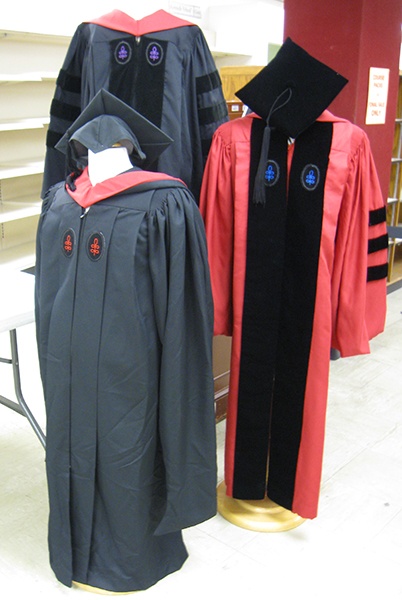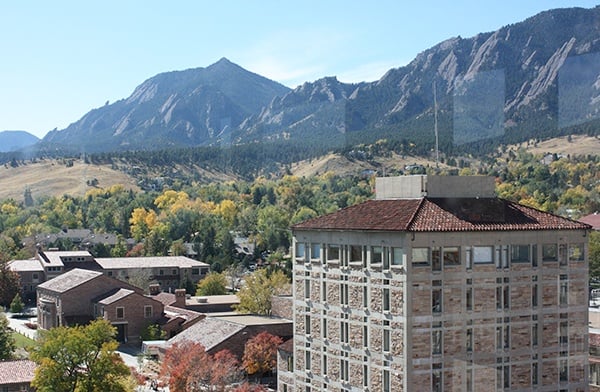
In many lists of colleges, research universities are listed or ranked separately from other schools that focus exclusively on the undergraduate experience, like liberal arts colleges. Why? What's the point?
In this article, I’ll list the main characteristics of research universities, give you some information about what life is like at a few different schools, and help you decide whether a research university is the right choice for you.
What Is a Research University?
As you may have guessed from the name, research universities are universities where the main focus is on the research of professors and graduate students. These universities may be less oriented towards undergraduate teaching, but they can still provide excellent experiences for students who are willing and able to seek out the resources they offer.
Here are some of the main characteristics of research universities:
More Interaction with Graduate Students
Since all research universities have graduate programs associated with them, you’ll have more opportunities to interact with grad students as an undergraduate. This may give you insight into your future or lead to collaboration on research projects conducted by more advanced students.
State-of-the-Art Research Facilities
The main mission of a research university is to produce new and exciting research, and to do that it needs to provide the best equipment to its students and professors. This is a big plus for students focused on the hard sciences because large research universities will usually have access to the latest technology.
Wide Variety of Majors
Research universities, due to their size and diversity,offer a wide range of majors to students. Although it’s sometimes more difficult to change your major or create your own major at these universities due to a large bureaucracy, you’ll have lot of choice in the first place.
Larger Class Sizes with Less Individual Attention
For most research universities, large class sizes, particularly at the introductory level, are common. You may find yourself in lecture halls with more than 100 students, which means less attention and personalized feedback.
However, most of these large classes are split off into discussion sections taught by graduate students, so you'll get a chance to interact with other students and TAs. Also, as you take more advanced classes, class sizes will shrink. Many of these universities also offer honors programs to qualified students where the environment is more like that of a small college.
Distinguished Faculty
Research universities attract well-known faculty because of the resources and opportunities they offer. You'll have the chance to network with very important people in fields that interest you. You may even be able to work side by side with high profile researchers on lab projects and become a coauthor on published research.
International Reputation
Research universities have better reputations on a global scale than smaller teaching colleges. Since big discoveries and scientific breakthroughs often take place at research universities, they get more recognition abroad than other colleges that might have excellent undergraduate programs but less robust research capabilities.
Advantages for Future Graduate Students
Spending four years as an undergraduate at a research university can give you a leg up in the competition for graduate school admissions. You can get letters of recommendation from top researchers in your field that will encourage other universities to accept you based on reputation.
 Don't let anyone get in the way of your dream to wear the fanciest shapeless sack at the next gathering of silly hats.
Don't let anyone get in the way of your dream to wear the fanciest shapeless sack at the next gathering of silly hats.
What Is the Student Experience Like?
The learning environment at a research university will be different from the learning environment at a small college in most cases. Here are a few examples of research universities along with some details on what the student experience is like. All student quotes are from the Fiske Guide to Colleges 2015:
Massachusetts Institute of Technology
Learning at MIT is based on research and hands-on experimentation. Students in electrical engineering and computer science have the option of pursuing a five-year degree, meaning they obtain a masters upon completion of their studies. One student says, “The average MIT student can be characterized as having a passion and singular drive for what they really want in life.”
The Undergraduate Research Opportunities Program facilitates student/faculty research projects and allows students to earn course credit and stipends for research. There are nine Nobel laureates on the MIT faculty at present.
MIT is home to many, many different research facilities. Currently under construction is a $350 million facility called MIT.nano, which will provide resources for students to do research in the exciting new field of nanotechnology.
 The Pierce Engineering Laboratory at MIT
The Pierce Engineering Laboratory at MIT
University of Colorado - Boulder
At UC Boulder, the 45,000 square foot Discovery Learning Center has 12 labs where engineering students can work on different technological challenges with high-tech capabilities and video conferencing. A student says that “professors and graduate student instructors alike have taken a keen interest in students’ progress, success, and learning, making themselves available to students as a valuable resource for extra assistance with class concepts and assignments.”
Programs such as the Special Undergraduate Enrichment Program and Presidents Leadership Class give high-performing students the ability to stand out from the crowd. Students say that “It’s such a large, broad campus that just about any sort of student can be found” and “every student, teacher, and department always has something new and exciting going on. It would be very hard to get bored here.”
 Beautiful scenery at UC Boulder!
Beautiful scenery at UC Boulder!
Washington University in St. Louis
Students say that Washington University in St. Louis is “a place to grow and learn while having an unbelievably fun time.” Undergraduates enroll in one of five schools: arts and sciences, architecture, art, business, or engineering, and the University also accommodates interdisciplinary majors and double majors.
The medical school runs a faculty exchange program with the undergraduate biology department, giving biology majors the opportunity to conduct advanced lab research. A program called the University Scholars Program allows students to apply for both undergraduate and graduate admission before entering college.
Unlike some research universities, Washington University in St. Louis gives students the chance to have one on one mentoring relationships with impressive faculty members. According to one student, “one of my classes was a 150-person lecture class, and another was a 12-person seminar...despite these disparate class sizes, I was on a first-name basis with both of the professors.”
 A reading room at the Library at Washington University in St. Louis
A reading room at the Library at Washington University in St. Louis
Should You Consider a Research University?
You may still be unsure about whether a research university is the right choice for you. If these characteristics apply to you, you should consider research universities as options in your college search:
You Plan to Go to Grad School
As mentioned above, many research universities have programs that will put you on track for a strong graduate school application or even provide extended five-year programs that allow you to graduate with a masters. These schools offer a more streamlined path to graduate school considering their reputable faculty and research opportunities.
You’re Interested in the Sciences
The advanced facilities and resources at research universities will make the most difference to students who are interested in the sciences. The most cutting-edge scientific discoveries are occurring at these universities, so you'll have many opportunities to meet people who are leaders in their fields (and even collaborate with them on projects).
Libraries at research universities are excellent, but at most colleges you'll be able to get the resources you’re looking for in the humanities. If you’re interested in science, however, other colleges might not give you access to the same high tech equipment available at research universities.
You Want to Do Research as an Undergraduate
It should come as no surprise to you that research universities are the best places to do research! This goes hand in hand with a desire to continue your education past an undergraduate degree. If you plan on going on to grad school (particularly in the sciences), you will almost certainly be expected to do research as an undergraduate for your thesis and other projects.
If you fit these characteristics, a research university may be the right choice for you, but it’s not necessarily the only good choice. There are many small colleges that will afford you similar opportunities on a slightly smaller scale and may give you more one-on-one time with professors and a stronger advising system. Students sometimes have to be very independent at research universities since the focus is not explicitly on undergraduate teaching. However, these schools offer great opportunities to gather hands-on experience in the subject areas that interest you and connect with the brightest minds in any field.
 Your brain on research.
Your brain on research.
What's Next?
Still trying to decide what type of college you want to attend? One factor you might consider besides a school's research capabilities is its status as a public or private institution. Read this article to find out which is a better fit for you.
If you're thinking of attending a research university, you may be looking at schools that are far from your home town. Learn more about the pros and cons of going to school out of state.
Not sure whether a large university is the right choice for you? Take a look at this article to see whether a big or small college will be a better fit for you.











